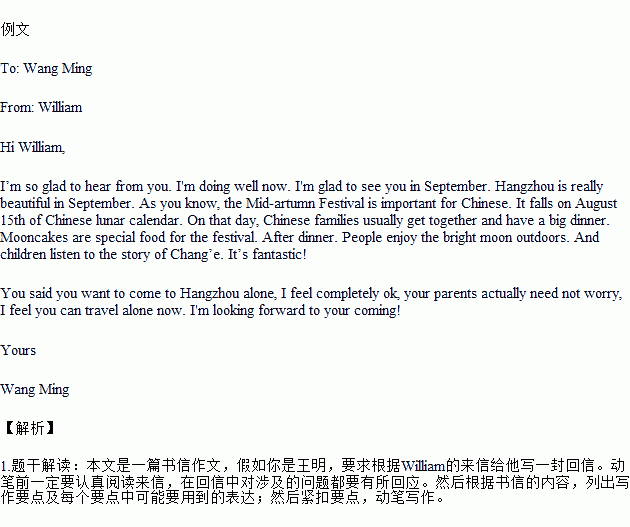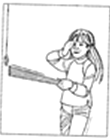题目内容
Hi Wang Ming,
How are you doing these day? I’m so glad that I’ll meet you in September! I know you’ll celebrate the Mid-autumn Festival and I’m interested in it. Could you tell me something about it?
By the way, I want to come to Hangzhou by myself, but my parents thinks it’s too dangerous for me to travel alone. Do you think I should be allowed to travel alone? What should I do?
William
To: Wang Ming
From: William
Hi William,
I’m so glad to hear from you. ____________________________________________________
_______________________________________________________________________________
_______________________________________________________________________________
_______________________________________________________________________________
_______________________________________________________________________________
_______________________________________________________________________________
_______________________________________________________________________________
_______________________________________________________________________________
Wang Ming


